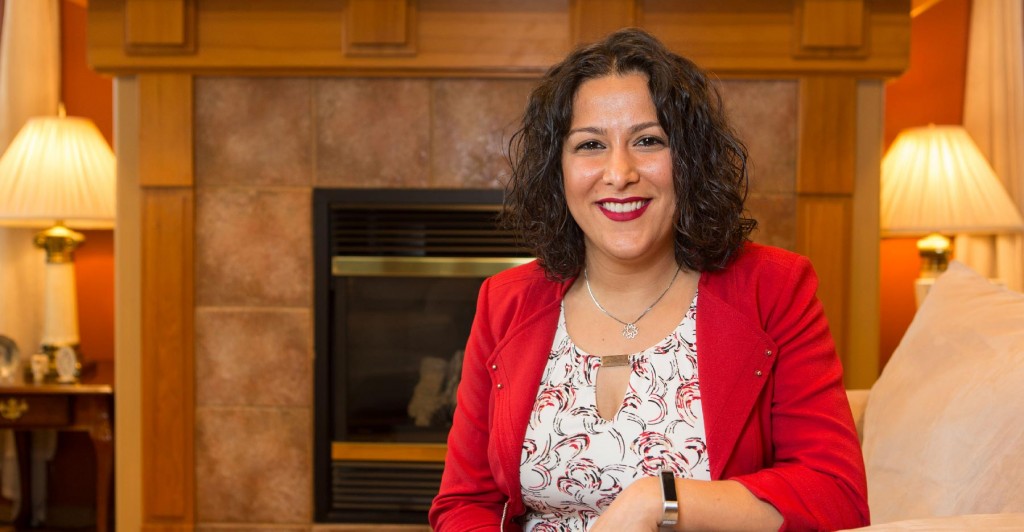Page 241 • (2,484 results in 0.088 seconds)
-
for classes, the student must: Submit the non-refundable advance tuition deposit or statement of intent to register form Submit the required medical history form Submit the online payment contract If applicable, remove any holds on the student account Registration Process Depending on the graduate program, students will either register themselves or be registered by the program administrator. Information about registration processes (including acceptance of financial aid if applicable, and online
-
... Please send pictures and stories from your time at PLU so we can post them here and recreate our joint history. Send your memories to andrewbw@plu.edu. Megan Garbett (2010)I graduated from Pacific Lutheran University in 2010 with a Bachelor’s degree in Anthropology. During my senior year, I began working at the PLU Archives and Special Collections and discovered my love for working with rare books, manuscripts, and artifacts. I went on to earn my M.A. in History-Archives and Records Management at
-
animals. Birding is a mutual practice of observation, conversation, education, and activism across species lines, and the Birders of PLU aim to co-create a flourishing multispecies future. Activities include birding trips, bird identification and life history lessons, campus-wide events, and more! Type of Club or Organization: Diversity, Justice, and Sustainability (DJS)/Civic Engagement Meeting Times & Places (Subject to Change): When: Fridays from 3pm-4pm Where: DJS Lounge Club Email: birdersofplu
-

distribution and evolution in fishes, 24 species representing 24 families and all four major orders of otophysan fishes were surveyed. A combination of light microscopy (LM) and scanning electron microscopy (SEM) was used to search 15 body regions for the presence of extraoral taste buds. Taste bud morphologies and distributions were then mapped onto an existing phylogeny of otophysan fishes, allowing for inferences regarding evolutionary history. Results suggest that extraoral taste buds may have evolved
-
through the aftermath of British rule and the imprint of the English language on the multiple languages spoken in the country. Simultaneously, the novel challenges Britain to redress its colonial history. Kamal is under no allegiance to false unification. She represents the pluralistic perspectives of Pakistan through a diverse cast of characters. Her novel aims to unsettle the British literary canon in order to make a place for itself, more characters of color, and non-English languages not only in
-

systems change that offer meaningful solutions.” Brian Lloyd ’88 is a vice president at Beacon Development Group, a Seattle-based operation that provides affordable housing consulting services to nonprofits and public housing Authorities. “PLU instilled the idea that I could serve the community,” says Lloyd, who double majored in history and global studies at PLU before earning a master of public policy degree from Harvard University. “After grad school, I realized the place for my service was the
-
notions of identity and prompt students to critically examine history and culture. The transformative impact of her teaching is palpable, as students emerge empowered and equipped with a critical perspective that challenges oppressive dynamics and amplifies marginalized voices.” Emily’s dedication to fostering a supportive community is evident in the words of her students. One student noted, “In our class for heritage speakers, she told us over and over again that even if our Spanish is not ‘academic
-
accessible in Europe. “In the reform of education, Luther was the first person in human history to ask that girls as well as boys receive an education, which had never been asked before. “Privilege was always given to boys from wealthy families who could afford tutors,” Torvend said. “So, to ask that peasant boys and peasant girls be educated was a phenomenal, revolutionary act and request.” Torvend also pointed out that during the Reformation, cities in Germany began supporting schools through taxes, a
-

fortunate she is to be in a position to use her education in service to others — just as her faith calls her to do. Upon arriving at PLU, she says she photographed everything, from lectures to extracurriculars. A photographer’s daughter, Sabet-Kazilas knew how important it was to capture her history as it unfolded. “I felt like I was the eyes of my relatives and friends who were deprived of this opportunity,” she said. “I wanted them to experience every second of what I was experiencing. That was a
-
way in making education far more accessible in Europe. “In the reform of education, Luther was the first person in human history to ask that girls as well as boys receive an education, which had never been asked before. “Privilege was always given to boys from wealthy families who could afford tutors,” Torvend said. “So, to ask that peasant boys and peasant girls be educated was a phenomenal, revolutionary act and request.” Torvend also pointed out that during the Reformation, cities in Germany
Do you have any feedback for us? If so, feel free to use our Feedback Form.


